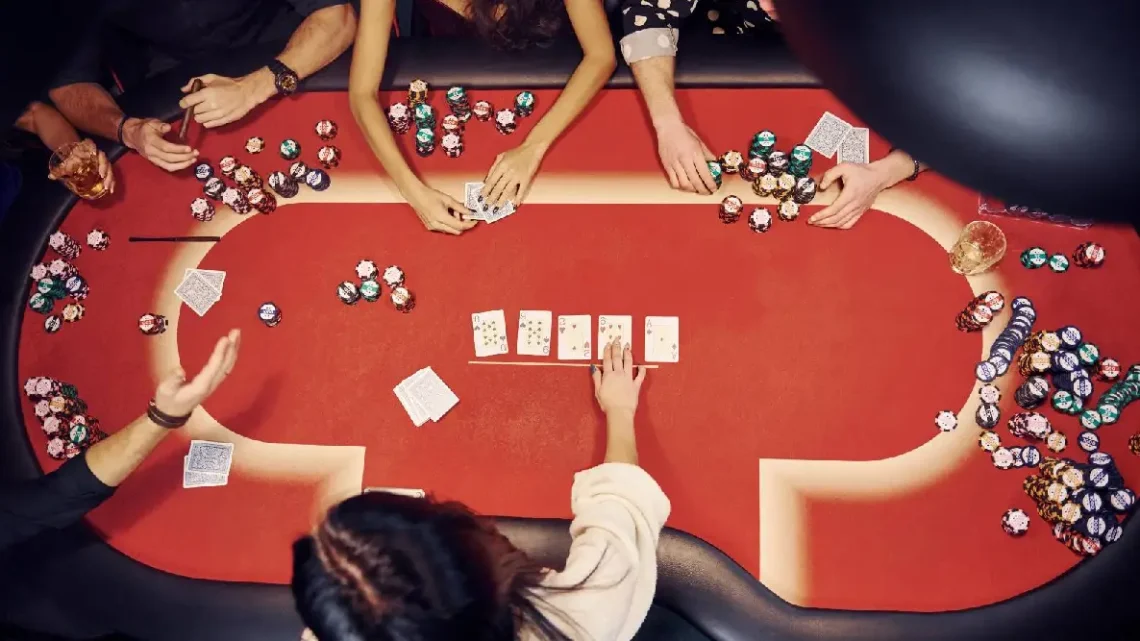Mental Strategies for Online Poker Players: Level Up Your Mind Game
September 12, 2025You’ve studied the charts. You know your pot odds. You can spot a bluff from a mile away. But then it happens. A bad beat. A string of cold cards. Suddenly, you’re not playing the game—the game is playing you. Your focus shatters, your stack dwindles, and frustration takes the driver’s seat.
Sound familiar? Here’s the deal: the difference between a good player and a great one isn’t just about math. It’s about mentality. The best players in the world treat their mind with the same respect they treat their bankroll. Let’s dive into the mental strategies that will keep you sharp, disciplined, and profitable at the virtual felt.
Taming the Tilt Monster: Your Number One Opponent
Tilt. It’s the poker player’s oldest nemesis. It’s that red-hot, irrational state where you start making decisions based on emotion, not logic. It’s not just about anger, either. Desperation, fear, even overconfidence can be forms of tilt.
Recognizing Your Tilt Triggers
The first step to beating tilt is knowing what sets you off. Is it a suckout on the river? A chat-box troll? A long period of runbad? Honestly, you need to be a detective with your own emotions. Keep a quick mental note—or even a physical one—when you feel that heat rising. Awareness is half the battle.
Your Pre-Flop Tilt Prevention Plan
Having a plan before you sit down is non-negotiable. It’s like a fire drill.
- Set a Stop-Loss: Decide on a number of buy-ins you’re willing to lose in a session. Once you hit it, you’re done. No questions, no “one more hand.”
- Use the Pause Button: Most poker clients have a “sit out” feature. Use it! If you feel tilt coming on, take three hands off. Breathe. Get up and walk away from the screen for five minutes. It’s a reset button for your brain.
- Reframe the Bad Beat: Instead of seeing a bad beat as a tragedy, try to see it as a sign you did the right thing. You got your money in with the best hand. That’s all you can control. In the long run, that’s how you win.
The Art of Focus in a World of Distractions
Playing online is a minefield of distractions. Social media notifications, a TV show in the background, the fridge calling your name… It’s a wonder anyone can concentrate. But focus, real deep focus, is a superpower.
Creating a Poker Sanctuary
Your environment matters. A lot. You wouldn’t perform brain surgery in a busy coffee shop, right? Treat your poker session with similar respect.
- Close all unnecessary browser tabs and applications.
- Put your phone on silent and in another room.
- Communicate to others in your home that you’re in “work mode” and shouldn’t be disturbed.
Practicing Active Observation
Don’t just wait for your turn to act. Use every second. Actively look for information. What are your opponents’ betting patterns? Who opens too wide? Who folds to every re-raise? This constant engagement keeps your mind in the game and stops it from wandering. It turns poker from a waiting game into an investigative one.
Building Unshakable Confidence (Even When You’re Losing)
Confidence in poker is a fragile thing. It soars with a win streak and plummets with a few bad sessions. But true confidence isn’t about results; it’s about trust in your process.
Separate Results from Decisions
This is, honestly, the cornerstone of poker mentality. A good decision can have a bad outcome. And a bad decision can, sometimes, luckily have a good outcome. You have to learn to judge yourself on the quality of your decision in the moment, not the result that follows. Did you make the right call with the information you had? Then pat yourself on the back, even if you lost the pot.
Review Your Play
Nothing builds confidence like seeing your own improvement. Regularly review your hand histories. Not just the bad beats, but the hands you won, too. Was there a better way to extract value? This practice reinforces good habits and proves to yourself that you know what you’re doing. It’s tangible evidence of your skills.
The Grind: Managing Mental Stamina and Burnout
Poker is a marathon, not a sprint. Mental fatigue is real, and it makes you play worse. You start missing reads, making lazy calculations, and just going through the motions.
Know Your Peak Hours
Are you a morning person or a night owl? Schedule your most important sessions for when your brain is naturally at its sharpest. Trying to grind out hands when you’re mentally exhausted is a recipe for disaster—and losses.
Schedule Breaks
Treat your poker time like a professional workday. For every hour of play, take a mandatory 5-10 minute break. Get up. Stretch. Look at something other than a screen. These short resets are crucial for maintaining a high level of play over long sessions and are a key part of any sustainable poker routine.
Putting It All Together: A Quick Mental Checklist
| Before You Play: | Set session goals (time, profit/loss limits). Eliminate distractions. Get in a positive mindset. |
| During Play: | Actively observe. Breathe. Take scheduled breaks. Check for tilt triggers. |
| After You Play: | Review key hands. Journal your mental state. Acknowledge good decisions, regardless of outcome. |
Mastering these mental strategies for online poker is what separates consistent winners from the rest. It’s not a flashy skill like a huge bluff, but it’s the bedrock everything else is built on. The table is felt, the cards are virtual, but the mind… well, the mind is the real battleground.






